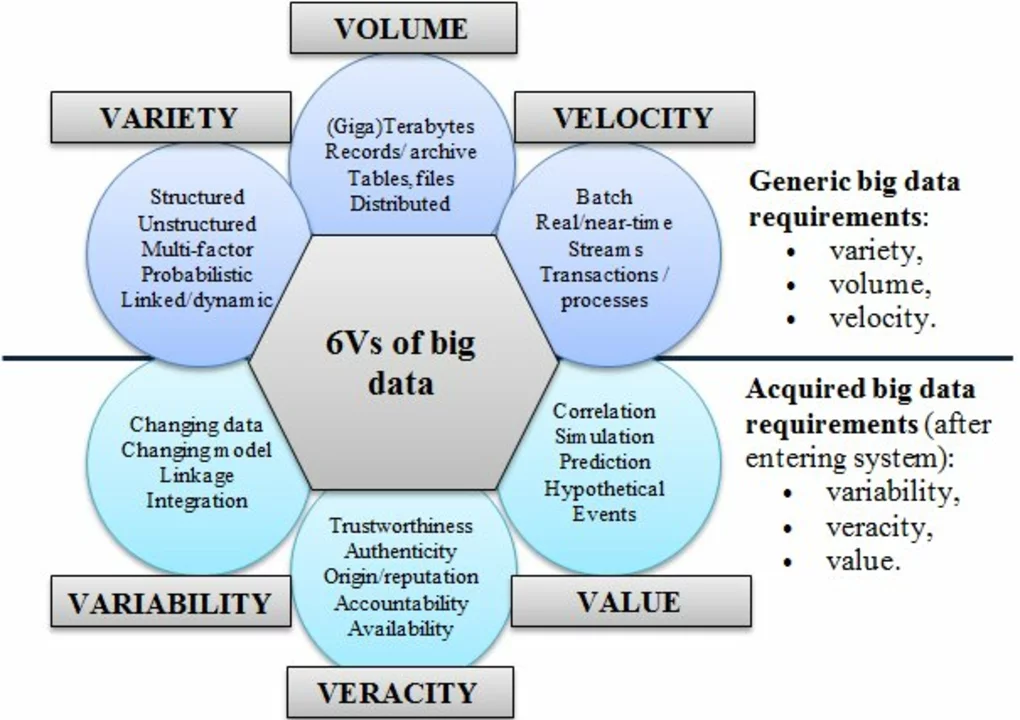An Introduction to Data Entry
As a blogger, I have come to realize the importance of data entry in various aspects of life. Data entry involves inputting, updating, and maintaining information in computer systems or databases. It may sound simple, but data entry is a crucial process in many industries, as it ensures the accuracy and reliability of information. In this article, I will be discussing eight reasons why data entry is so important. Let's dive in!
1. Ensuring Data Accuracy
One of the most important aspects of data entry is ensuring the accuracy of the information being entered. This is because accurate data is vital for informed decision-making in businesses and organizations. For example, inaccurate financial data can lead to poor decisions, which could negatively impact the organization's bottom line. Similarly, incorrect customer information can result in poor customer service and dissatisfaction. Accurate data entry helps maintain the integrity and reliability of information, ultimately leading to better decision-making and business success.
2. Streamlining Business Processes
Data entry plays a crucial role in streamlining business processes by organizing and maintaining essential data. When data is accurately and efficiently entered into a system, it becomes much easier for businesses to analyze and utilize the information. This enables organizations to make strategic decisions, improve operational efficiency, and better serve their customers. Efficient data entry also helps save time and resources, ultimately leading to increased productivity and profitability.
3. Enhancing Data Security
Proper data entry is essential for maintaining the security of sensitive information. By ensuring that data is accurately entered and updated, organizations can minimize the risk of unauthorized access or data breaches. Additionally, many data entry professionals are well-versed in data security best practices, further safeguarding sensitive information from potential threats. Secure data entry processes not only protect an organization's valuable information but also help maintain customer trust and confidence.
4. Facilitating Data Analysis
Data analysis is an essential aspect of business operations, as it helps organizations identify trends, patterns, and areas for improvement. Accurate data entry is the foundation of effective data analysis, as it ensures that the information being analyzed is reliable and up-to-date. With accurate data, businesses can make informed decisions, develop targeted strategies, and ultimately, achieve their goals more efficiently.
5. Improving Customer Service
Accurate data entry is vital for providing excellent customer service. When customer information is correctly entered and maintained, businesses can better understand their customers' needs and preferences. This enables organizations to offer personalized service, resolve issues promptly, and foster strong customer relationships. Accurate customer data also allows businesses to develop more targeted marketing campaigns, ultimately leading to increased customer satisfaction and loyalty.
6. Ensuring Compliance with Regulations
Many industries are subject to strict regulations regarding data management and privacy. Accurate data entry ensures that organizations comply with these regulations by maintaining complete and up-to-date records. Failure to comply with data management regulations can result in significant fines and penalties, as well as damage to an organization's reputation. By prioritizing accurate data entry, businesses can avoid these costly consequences and maintain their standing in their respective industries.
7. Reducing Errors and Costs
Inaccurate or incomplete data entry can lead to costly errors and inefficiencies in business processes. For example, incorrect financial data can result in budgeting errors and financial discrepancies. Similarly, inaccurate inventory data can lead to stock shortages and lost sales. By ensuring that data is accurately entered and maintained, organizations can minimize these costly mistakes and operate more efficiently.
8. Supporting Remote Work and Virtual Collaboration
With the increasing prevalence of remote work and virtual collaboration, accurate data entry has become even more critical. When information is correctly entered and maintained in a centralized database or system, team members can easily access and update the data, regardless of their location. This enables organizations to maintain seamless communication and collaboration among their employees, ultimately boosting productivity and efficiency.
In conclusion, data entry is a vital aspect of business operations that should not be overlooked. Accurate and efficient data entry not only supports informed decision-making and streamlined processes but also enhances data security, facilitates analysis, and improves customer service. By prioritizing data entry, businesses can enjoy increased productivity, profitability, and overall success.
